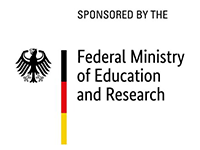Working Paper 15: Solidarische Landwirtschaft (CSAs) in Germany: Drivers of change for a socio-ecological transformation of the food system? by Thomas Julián Poveda Ríos
In face of a multiple crisis within the current corporate food system, alternative models of food production and distribution have attracted increasing attention as catalysts for a socio-ecological transformation. Among these alternative models, Community Supported Agriculture (CSA) or as it is called in Germany, Solidarische Landwirtschaft (Solawi), emerges as a promising model for reshaping the socio-ecological landscape of food production and consumption. By shedding light on the transformative potentials and limitations of Solawis in the framework of a socio-ecological transformation of the local food system this paper aims to share knowledge and a further perspective on the question “How are we going to feed the world?”, the leading question of this working paper series. Through semi-structured expert interviews conducted in fall 2023 within two case studies around Berlin, the Apfeltraum Solawi and the Spörgelhof e.G. and a subsequent qualitative content analysis this work shares relevant insights across diverse domains of Solawi work, such as community-building, relationship with nature, fair wages and ecological farming practices.
Food for Justice: Power, Politics and Food Inequalities in a Bioeconomy
Heidelberg University
Heidelberg Centrum für Ibero-Amerika Studien – HCIAS
Brunnengasse 1, 69117 Heidelberg
foodforjustice@uni-heidelberg.de
Heidelberg Center for Ibero-American Studies
Brunnengasse 1
69117 Heidelberg, Germany
hcias@uni-heidelberg.de
Financed by the:
